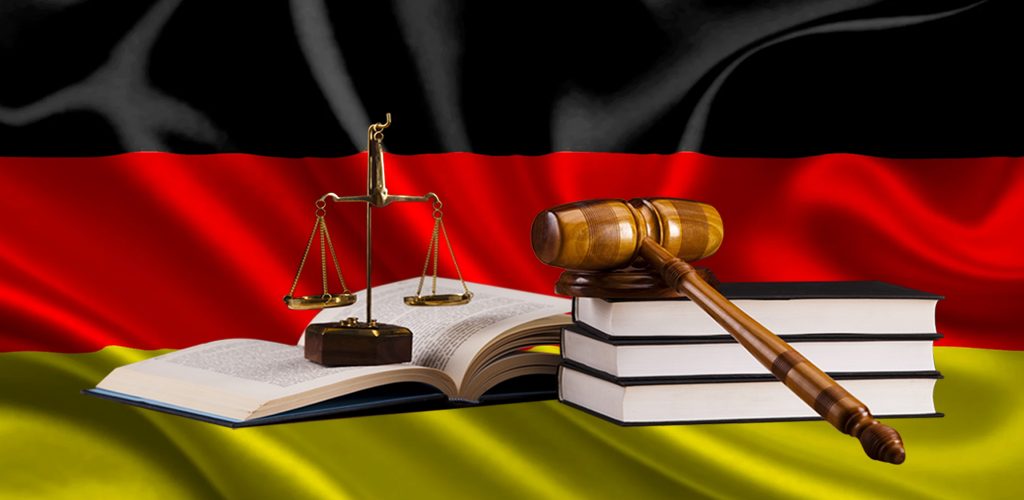
in this article
- What is the NpSG?
- What Will Be Banned This Year
- Time Frame
- Can I Still Buy 1cP-LSD
- Will I Get Into Trouble For Ordering Now?
- The Reality Of NPS Bans
- Sources
- Credits
Are you 18 or older?
Please confirm that your are 18 years of age or older.
You are not allowed to access the page.

(Updated: 20/06/2021)
The Federal Council will discuss the NpSG revision on 25/06/2021 and it will become law the day after it is published in the Federal Gazette here
The full draft of the proposed NpSG revision has been published (29/03/2021) defining everything that will be banned by the revision. You can find it here
For the full list of what we know will be banned by the revision go to “What will be banned this year”
Für den deutschen Artikel klicken Sie HIER
In Germany, there are several laws that govern drugs. The NpSG or Neue-psychoaktive-Stoffe-Gesetz (New Psychoactive Substances Act) was introduced on November 26th 2016 in an attempt to combat the spread of new psychoactive substances and research chemicals. Previously the BtMG (German Narcotics act) listed and scheduled substances individually, however, the new NpSG took a different approach by banning entire groups of substances to stop altered and novel compounds circumventing the law.
Currently, the NpSG includes:
The full up to date NpSG act can be found here with chemical definitions for the compounds that fall under it.
A committee of experts usually meets twice a year to discuss amendments and additions to the NpSG and BtMG. Once discussed, these amendments are written up officially as recommendations to the German Federal Government. This is then discussed by the Federal Council who implements them, officially passing them into law by publishing the amendments in the Federal Law Gazette. They come into effect one day after they are published in the Gazette and this can be done any time within one month from discussion by the Federal Council.
The Federal Council meets on set dates throughout the year, every 3-5 weeks on a Friday at 9:30AM CET. The drafts for what will be discussed in these meetings are published HERE on a Tuesday, two weeks before the meeting. The final agenda will appear on a Tuesday one week before the meeting.
The most notable recent amendments (before this one) were brought to the Federal Government on May 17th 2019. They were the subject of the 979th meeting of the Federal Council on June 28th 2019 and brought into law a few weeks later, making popular substances such as 1P-LSD, 4 HO MET, and 4 HO MiPT illegal in Germany.
It’s important to note that while the NpSG is an annex of the BtMG, the prohibition and penal provisions of the NpSG are particularly aimed at manufacturers, dealers, and distributors to stop the manufacture, sale, importation, and distribution of research chemicals within Germany. While it is technically illegal to acquire and be in possession of substances covered by the NpSG, penalties are far less harsh than for other substances covered by the BtMG and some believe prosecution will not be followed up. This does mean, however, once substances fall under the NpSG, most research chemical vendors will stop shipping them to or supplying them to Germany.
As always, we highly recommend you read, interpret and familiarise yourself with the laws within your jurisdiction to make informed decisions about the legality of your research.
On December 7th 2020 at 1pm, the committee of experts at the Federal Institute for Drugs and Medical Devices met to discuss amendments and additions to the Narcotics Act ( BtMG ) and Section 7 of the New Psychoactive Substances Act (NpSG).You can see the full agenda from this meeting here
In a vote dated December 21, 2020, the Committee of Experts recommended that the Federal Government make these changes. This was made public on the 25th January 2021 and can be seen here
On the 29th March 2021 the full proposed draft of the NpSG revision was published on the European Commission website. You can see the communication between the German government and the European Commission explaining the revision HERE and also download the draft in full in your chosen language. To download the draft in English click HERE
A screenshot of the draft:
From the full draft, we can see that these compounds will be made illegal once this NpSG revision gets implemented:
Lysergamides:
1-cP-LSD
1-cP-AL-LAD
Arylcyclohexylamines (Dissociatives):
2-FDCK
DCK
O-PCE
DMXE
HXE
MXiPr
MXPr
3-HO-PCE
3-MeO-PCE
3-HO-PCP
3-Me-PCP
3-F-PCP
3-Cl-PCP
BTCP
Tryptamines:
4-HO-McPT
5-Br-DMT
5-Cl-DMT
5-Cl-AMT
Benzimidazoles:
Etazene
Metodesnitazene
Fluonitazene
Benzodiazepines:
Bentazepam
Cinazepam
Synthetic Cannabinoids:
Cumyl-BC-HpMegaClone-221
Going on past amendments (see above), we expect this to enter into law in early July this year after discussion by the Federal Council at the meeting scheduled for:
25/06/21
As stated earlier, once the recommendations are discussed by the council, it usually takes a few weeks for them to be written into the Federal Gazette, bringing them into law, however this time frame is not a certainty and in theory it could be written into the Federal Gazette much sooner.
We are closely monitoring the situation and this will be updated as more information emerges. You can check for yourself when the NpSG revision has been published in the Federal Gazette here
The NpSG revision will become law the day after it is published in the Federal Gazette.

A common question we’re receiving from our German customers is if they can still buy 1cP-LSD, 2-FDCK and other products currently legal in Germany. The short answer is YES…BUT STOCK UP NOW!!
Until the NpSG is published in the Federal Gazette, we will continue to provide the best quality 1cP-LSD 100mcg blotters, 1cP-LSD 20mcg micro dose blotters, 1cP-LSD 150mcg custom design blotters and Dissociatives such as 2-FDCK, DCK, O-PCE, DMXE to our customers in Germany..
As soon as it is published, we will stop all sales to Germany of 1cP-LSD, 1cP-AL-LAD and Arylcyclohexylamines (Dissociatives)
No – laws can not be enforced retro-actively, so as long as you order (and receive your order) before the NpSG is revised, the entire process is still legal.
It’s important to remember that once the NpSG is revised, all the compounds covered by it will no longer be legal to import, distribute or manufacture in Germany. Possession of compounds covered by the NpsG is still considered illegal however as stated earlier, many people believe possession of small amounts for personal use will not generally be considered a prosecutable offence, as the NpsG is primarily set up to prosecute and penalise importers and distributors over personal users.
Saying this, it is important to read, research and interpret these laws yourself to make a safe and informed decision.
The sad reality of these types of bans is that the game of cat and mouse between research chemical manufacturers and lawmakers will continue. New novel compounds will be produced that circumvent the law, but research into the safety and efficacy of these compounds will have to start from scratch while well researched, loved and arguably safe (in comparison to Alcohol and Tobacco) compounds are made illegal.
Aside from the well documented negatives and failures associated with drug laws and prohibition, there are also important ethical arguments to consider regarding limiting people’s access to potentially beneficial psychedelics, their rights to experiment and autonomy.
There was on official German study published on 13/10/2020 evaluating the effect of the NpSG which can be found here
To quote from the findings of the study:
“The result of the evaluation is really devastating,” says Kirsten Kappert-Gonther, member of the health committee and spokeswoman for the Bundestag parliamentary group of Bündnis 90 / Die Grünen for drug policy. “The ban did not prevent consumption, it only led to it being pushed onto the black market, where there is no longer any control whatsoever.”
This means that not only is the NpSG counter intuitive, but it’s actually putting the very people it’s supposedly designed to protect at higher risk. Sadly these findings have been largely ignored by politicians, leaving the question: Who is the ban really helping?
While we understand that the current Research Chemical market is officially unregulated, we would argue that the industry within Europe, especially within The Netherlands, is self regulated due to RC Vendors operating legally as official tax paying businesses with clear net websites and review systems. Vendors like ourselves are held to account, not only by our customers but by fellow vendors, review sites, forums, journalists and the community as a whole. It’s in everyone’s best interest for the best quality compounds to be available, not only to protect our reputation but also our customers and the communities well being.
While this system is by no means perfect, we believe this is a step in the right direction and far better than a completely unregulated black market that bans like the NpSG are pushing everyone towards.
Welcome to Chemical Collective.
Create an account to earn 200 welcome points.
Already have an account? Sign in
Check out our Community Blog and get involved with the conversation. You will be awarded 50 x ChemCoins for each comment up to a limit of 250 total ChemCoins.
Have you purchased any of our products? Reviews and reports are so important to the community. Share your honest opinion, and we’ll reward you with 50 ChemCoins for each review!
Every time you complete an order with us, you’ll be awarded ChemCoins for each Euro spent.
Welcome to Chemical Collective.
Create an account to earn 200 welcome points.
Already have an account? Sign in
Earn commission every time someone makes a purchase through your link.
When you become an affiliate, you will be allocated a unique link to share with your friends, followers, subscribers, or Aunt Susan.
You can choose to payout the commission earned once per month, or save it up to receive on a rainy day! Commission earned is 5% of the total order value per referral.
Contact us to join the Chemical Collective family and become an affiliate.
share your toughts
Join the Conversation.